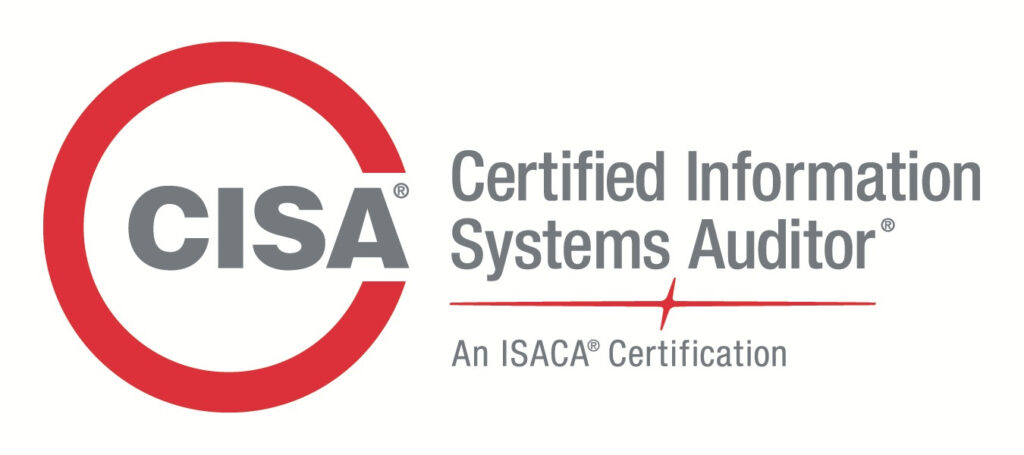Introduction to the ISACA CISA Certification
Are you considering a career boost in the field of information systems? The ISACA Certified Information Systems Auditor (CISA) certification might just be your golden ticket. As businesses increasingly prioritize cybersecurity and data integrity, professionals with recognized credentials stand out in a crowded job market. But before diving into this opportunity, it’s essential to understand what the CISA certification entails—especially when it comes to costs. In 2024, many aspiring auditors are asking: how much should I budget for this esteemed certification? Let’s explore the ins and outs of obtaining your CISA certification while keeping an eye on what it’ll set you back financially.
The Benefits of Obtaining the CISA Certification
Obtaining the CISA certification can significantly enhance your career prospects in the field of information systems audit, control, and security. This globally recognized credential demonstrates your expertise, making you a more attractive candidate to potential employers.

With CISA under your belt, you’ll likely see an increase in job opportunities across various industries. Companies often prioritize candidates with certifications that validate their skills and knowledge.
Furthermore, CISA holders typically enjoy higher earning potential compared to non-certified peers. The investment in this certification can yield substantial returns over time.
Networking is another pivotal benefit. Joining the ISACA community opens doors for professional connections and access to exclusive events that foster growth and collaboration within the industry.
Pursuing CISA encourages continuous learning. It keeps professionals updated on industry standards and best practices—essential for staying relevant in a rapidly evolving digital landscape.
Understanding the Exam Format and Requirements
The CISA exam consists of 150 multiple-choice questions, designed to test your knowledge across various domains. You’ll have four hours to complete it, which is ample time if you’ve prepared well.

Eligibility requirements include a minimum of five years of professional experience in information systems auditing, control, or security. However, certain educational qualifications can substitute for this experience.
Familiarity with the content outline provided by ISACA is crucial. The exam covers areas like governance and management of IT, information systems acquisition and development, and service delivery and supports useful source.
Understanding the scoring system will help you gauge your performance as well. A scaled score ranges from 200 to 800; a passing score starts at 450. Knowing these details better equips you for future success on test day.
Breakdown of Costs for CISA Certification
The CISA certification is a valuable credential for IT auditors. However, aspiring candidates should be aware of the various costs involved.
First, there’s the exam registration fee. In 2024, this typically ranges from $575 to $760 depending on your ISACA membership status. Members enjoy reduced rates, making it beneficial to join if you’re serious about obtaining the certification.
Next are study materials and resources. Books, online courses, and practice exams can add up quickly—expect to spend anywhere from $200 to over $1,000 based on your choices.
Don’t forget about potential travel expenses if you opt for an in-person test location. Accommodation or transportation can also contribute significantly if you’re traveling far.
Consider renewal fees after achieving certification; keeping CISA active requires ongoing investment in professional education and compliance with ISACA’s guidelines.
Tips for Reducing the Cost of CISA Certification
Pursuing the CISA certification doesn’t have to drain your wallet. One effective way to save is by exploring early registration discounts. ISACA often offers reduced fees for those who sign up ahead of time.

Consider group rates as well. If you’re part of an organization or study group, check if ISACA provides bulk discounts for multiple candidates registering together.
Utilizing a cisa exam voucher can significantly lower your expenses too. Look out for promotions that include vouchers or discounted packages, which might be available through training providers or partners.
Another tip is to leverage free resources online. Numerous websites offer practice questions and study materials at no cost, providing valuable support without impacting your budget.
Don’t overlook community forums and local chapters where members share insights and resources, potentially leading you to additional savings on preparatory courses or exam fees.
Is it Worth the Investment?
Investing in the CISA certification can significantly enhance your career prospects. Employers often look for certified professionals when hiring for roles related to information systems audit and control.
With a CISA credential, you demonstrate expertise and commitment to security practices. This gives you an edge over non-certified candidates in competitive job markets.
The return on investment is substantial too. Many report higher salaries and better job opportunities after obtaining their certification. It’s not just about immediate financial gains; it’s also about long-term career growth.
Networking opportunities with fellow ISACA members can further enrich your professional journey. Accessing exclusive resources through ISACA can keep you updated with industry trends, ensuring ongoing relevance in your field.
Consider how much value this could bring to your skill set and future employability before weighing the costs associated with the exam or any necessary study materials like a cisa exam voucher.
Conclusion
The ISACA CISA certification is a valuable asset for professionals in the field of information systems auditing. The benefits it offers can significantly enhance your career trajectory. With an understanding of the exam format and its requirements, candidates can better prepare to meet the challenges ahead.
When considering the costs associated with obtaining this certification, it’s essential to break down each component—from registration fees to study materials. There are also several strategies available that could help reduce these expenses, making it more accessible for individuals eager to advance in their careers.
Investing in a CISA certification involves weighing both financial and professional implications. Many find that the long-term returns on this investment far exceed initial costs, leading to greater job security and advancement opportunities.
Deciding whether or not to pursue this path ultimately depends on individual goals and circumstances. For those dedicated professionals ready to elevate their expertise, pursuing CISA may well be one of the best decisions they make for their career development.







